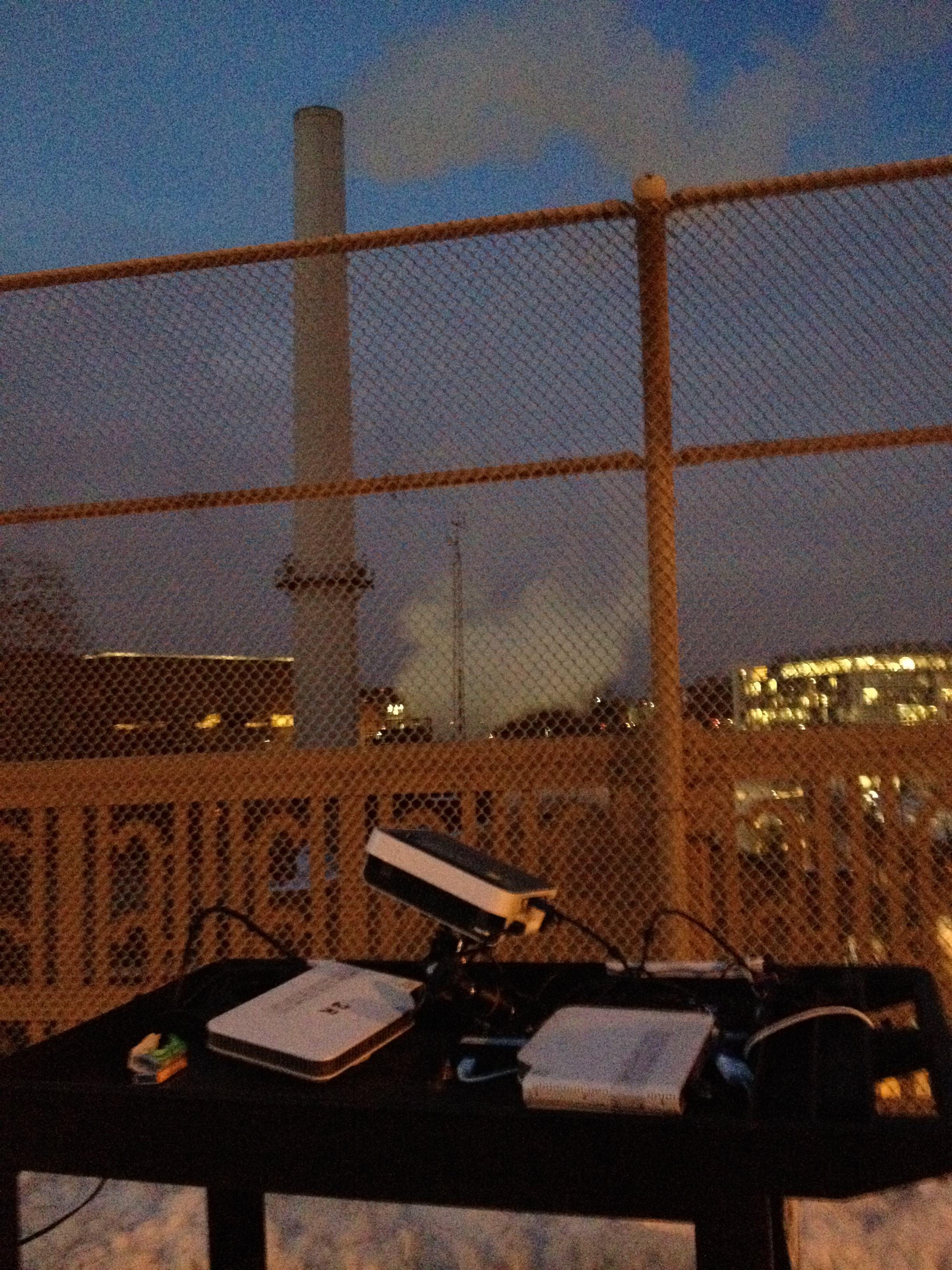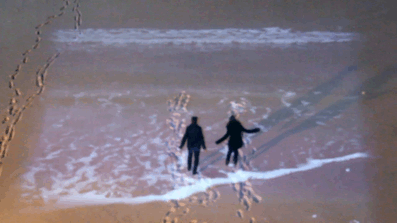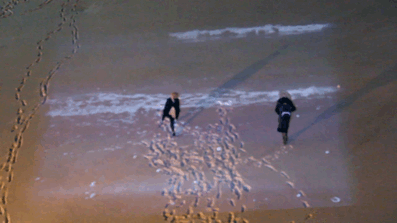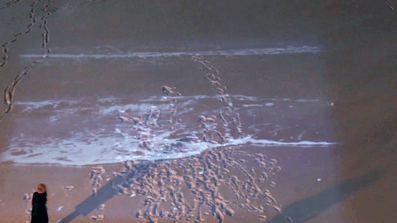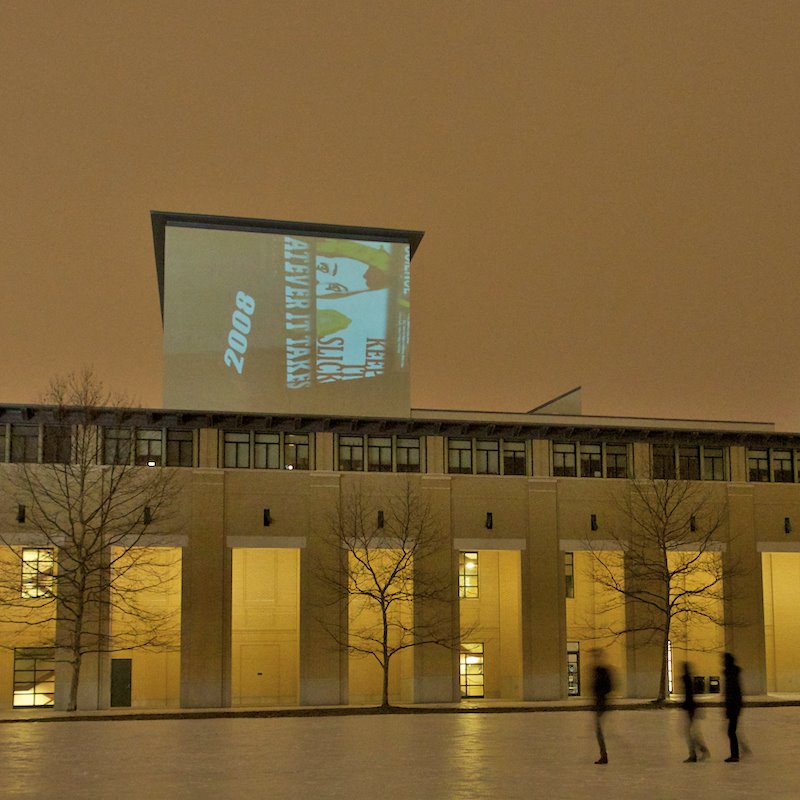

Originally based on Braitenberg vehicles ( Braitenberg, V. (1984). Vehicles: Experiments in synthetic psychology. Cambridge, MA: MIT Press), those robot drive their wheels according to the signal from the light sensors.
By adding the wireless communication, the robots can partly know each other’s information and change their movement and LED brightness to create visible signal. The wireless signal and the visible signal creates an feedback loop. Thus, by just applying each individual with simple rules we can observe complex behaviors that presents by the collection.
In this project, a robot intervenes in public and attempts to have casual conversation with people. Unscripted and unrehearsed, we observe peoples natural reactions to robots and how the dynamics of dialog and interactions play out.
I am puppeteering this robot for a hidden location. People are unaware if this robot is autonomous or tele-operated.
Video:
Telepresence: I am able to semi-transfer my person through this robot. Using a fat shark vision system, I see what the robots camera sees. Using a wireless speaker system, the robot speaks what I speak. With remote controlled mobile system I can move the robot to where I would go.
This enables me to interact with people through the disguise of a robot.
“Robots allow you to do things you wouldn’t normally do.”
With this robot, I can harass people, talk to complete strangers, use pickup lines on girls, scare little children, sell chocolate, and cause public disruption. I can do all this without punishment or reprimand. Robots are perceived as infallible innocent creatures.
People don’t know how to react. Robot takes upon a character of a curios innocent looking to make friends, explore, and initiate conversation.
Choice Interactions [with video time]:
– Waking up a sleeping person form a nap.[6:15]
– Accidentally terrifying a 8-year-old. [2:48]
– Flattering a girl, then pursuing her. [5:06]
– selling two chocolate bars. (“Am i really about to buy a chocolate bar off this robot right now? Do i need this experience in my life?”) [3:46]
– Catching a girl talking on a phone off-guard (“I think a robot is talking to me….A robot is bothering me”) [1:45]
– Repetitively running into a wall [5:48]
Part 2 of Robot Mouse Project. I wanted to continue with my theme of bringing everyday electronics to life and give them a story to tell. These mice fight over a piece of cheese until something unexpected happens.
For this project I took apart an old computer mouse and turned it into a remote control computer mouse. While it no longer serves its original purpose, it has been transformed from a functional but broken device into a useless but working device. This piece is also a visual pun, because it rolls around on the ground like a living mouse.
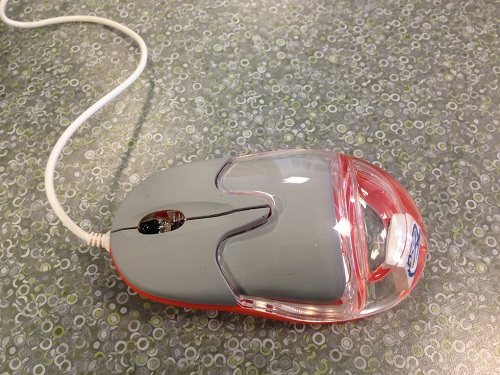
This mouse is a piece of rogue technology which has come to life, but instead of trying to take over the world it simply is content to roll around on the floor.
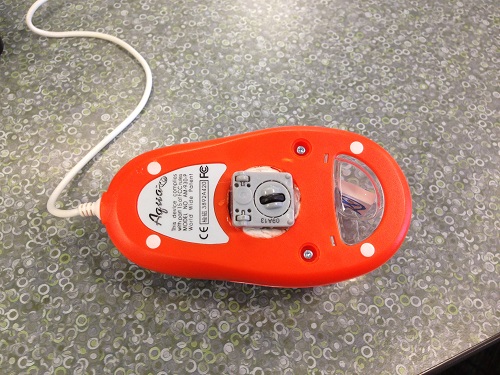
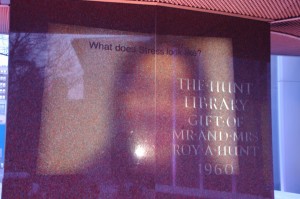
For this project, we were interested in the look and feel of stress on the CMU campus. The original intent was to make our piece interactive and crowd-source in realtime people’s thoughts and feelings on stress. Technical difficulties and a lack of time however forced us to consider an approach that was not real-time, but achieved the same goals. The piece thus works as follows: a participant listens to a video question about stress from the last participant, answers this question with another video, and finally records a video question for the next participant. We were intrigued by this self-propagating feature of the piece because we believe it adds a feeling of genuineness and authenticity when the questions about stress come in the form of a dialogue from a peer. The piece was projected on the memorial right in front of the Hunt Library – a location where we were sure to find stressed college students.

For this project our group took three projectors out to Schenley Plaza and projected kaleidoscopic images of marbles onto the tent.
Our original intent was to project onto a large snowball, but we chose to use the tent instead in the interest of modifying an already existing structure instead of creating a sculptural piece. Our main goal was to transform the space and project interesting geometric visuals and we found that the tent was a good, smooth surface without any patterns on its surface to disrupt the projection.
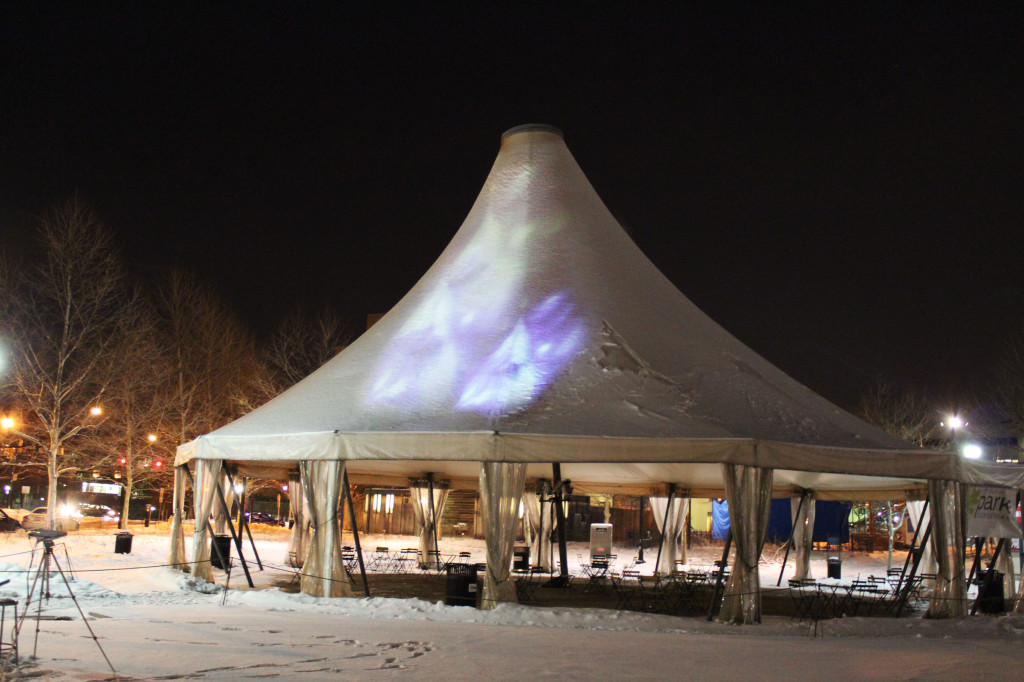
Our piece was well received by passers-by. It was very cold that night so not many people were walking around, but a group of Korean college students came by and asked us about it. They watched for a few minutes before going on their way. A few other people also walked past and gave us shy but curious looks.
When we were satisfied with our work with the tent we turned our projectors to the giant snowball we had started making two weeks prior. This was simply out of curiosity for how it would look and we were satisfied with the results. We agree that it would have had far more impact if we had been able to make it bigger.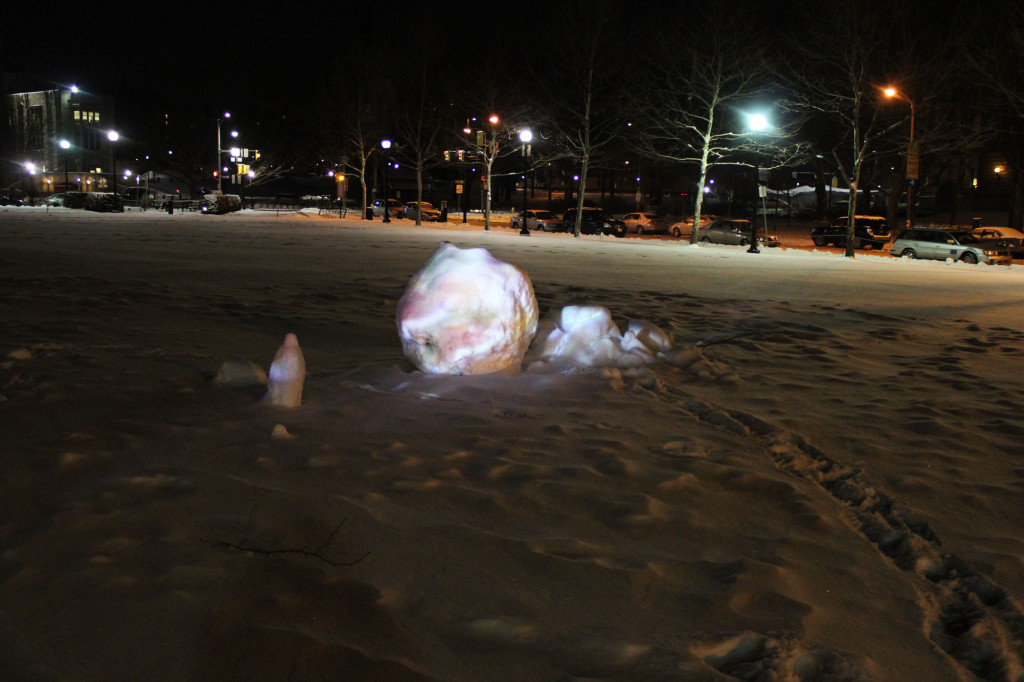
We were surprised when at this point a man walking by walked up to us and asked if he could take a picture. We invited him over and took his picture next to the snowball. His English was a bit difficult to understand but he seemed pleased and went on his way. It is possible that the snowball being smaller and closer to the ground than the tent made it more accessible to him as the audience, and so he initiated an interaction.
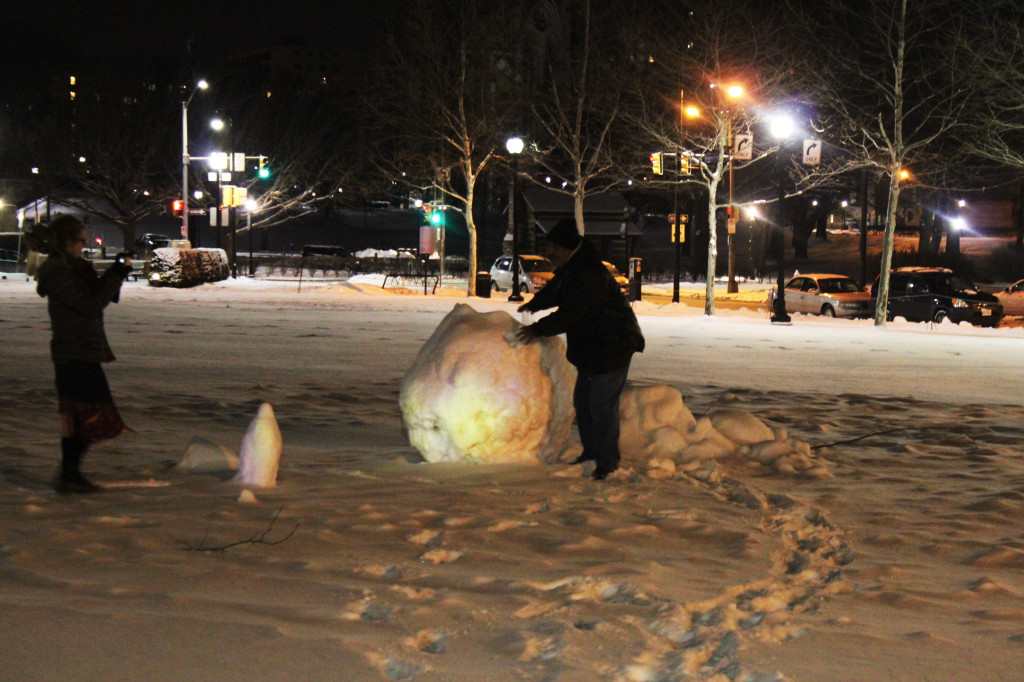
We were very glad that we had decided to use three projectors, because if we did not have that many it would have been impossible to see the images with all the ambient light in the area. Prior to this attempt we had run into problems with our inverter and one of our tripods,but thankfully we were able to resolve those issues and get good results.
Here is the video we projected:
“News Puff”
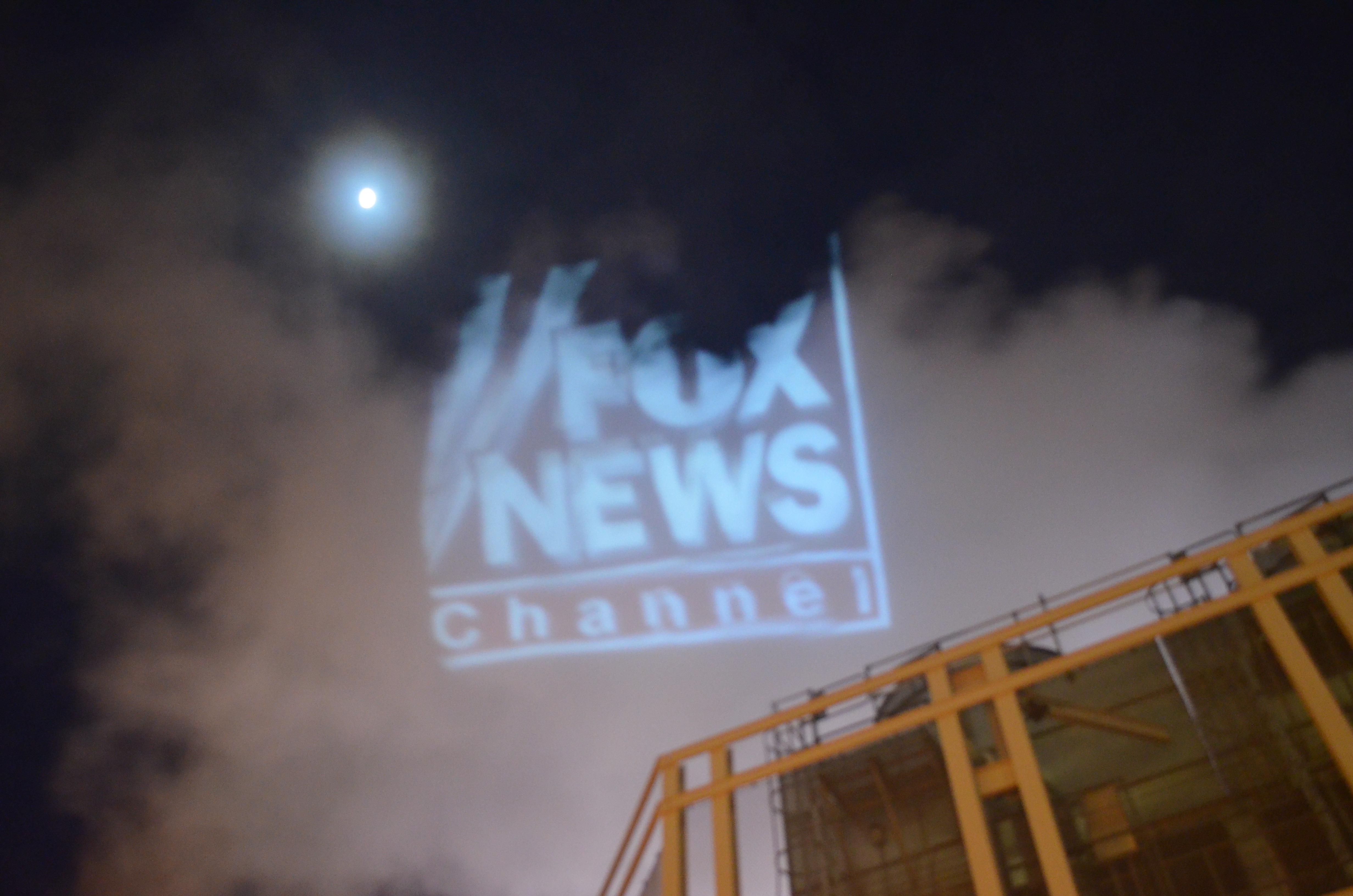
Purpose:
We will project clips of the corporate news media onto smoke escaping from the Cloud Factory. The amorphous quality of the smoke will challenge the fixed, clearly-defined and over-simplified truths that the corporate news media attempts to convey.
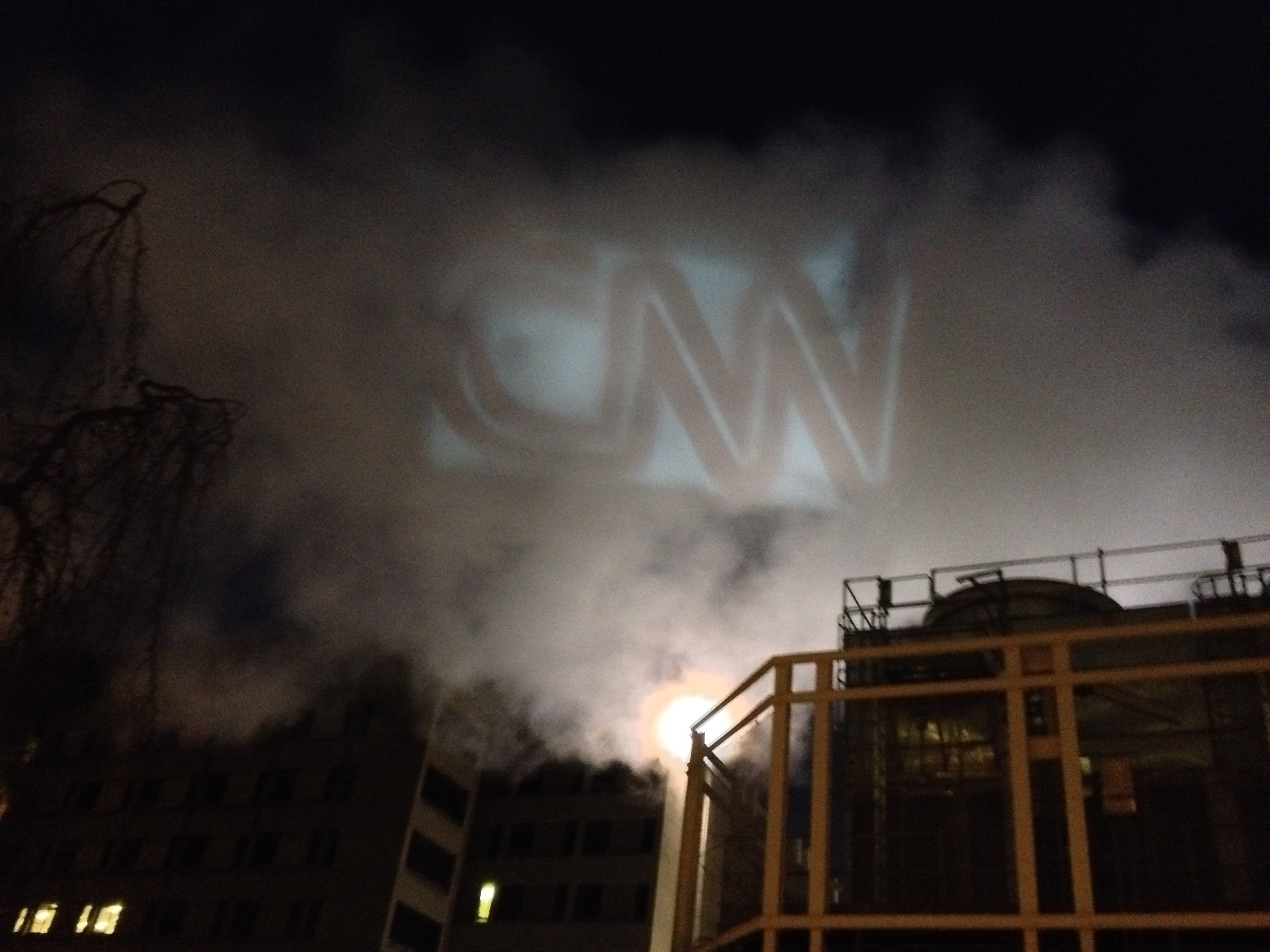
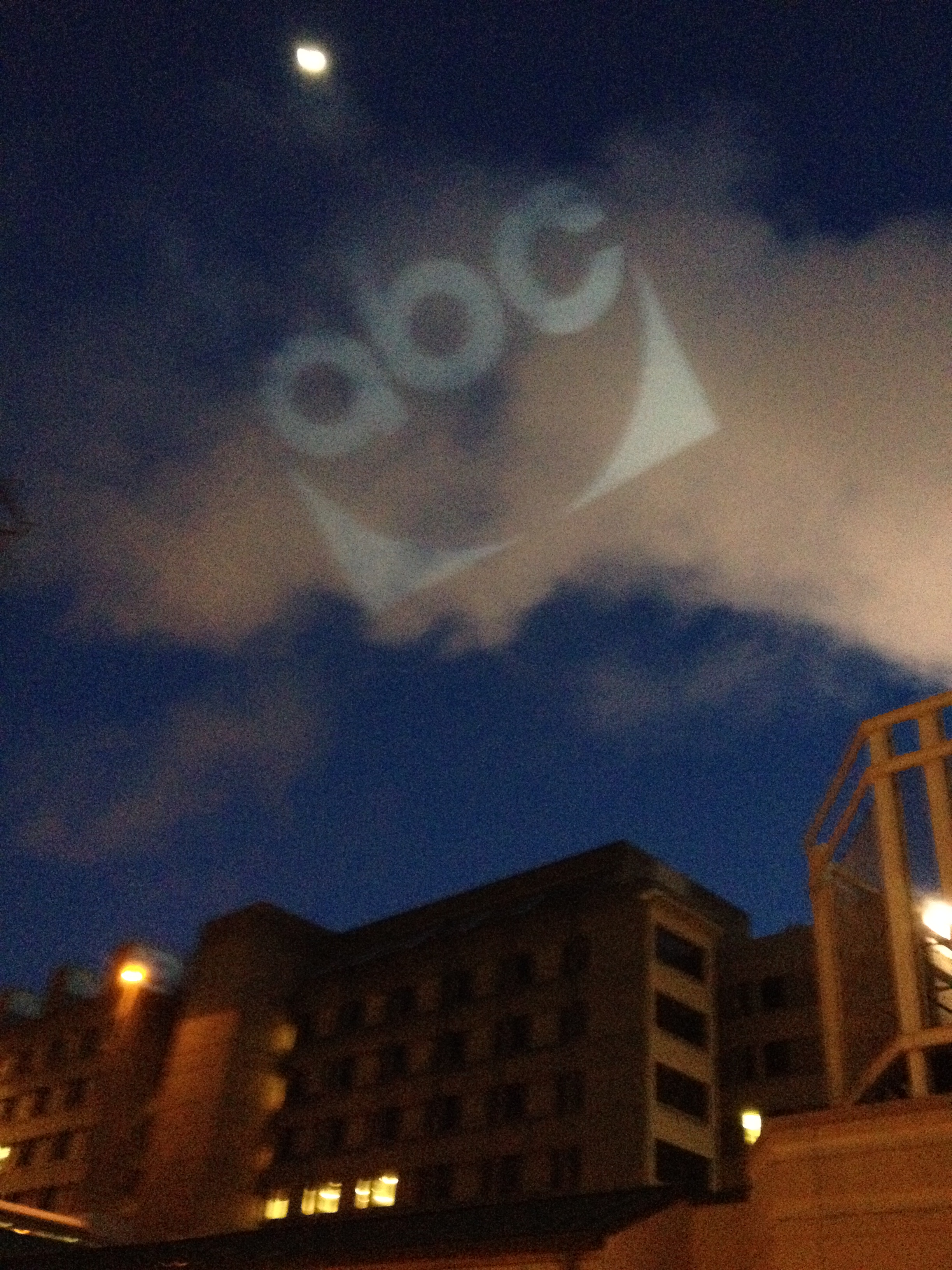

Out in the field:
We originally tried the Cloud Factory next to the Carnegie Library, but we soon learned the limitations of our projector.
